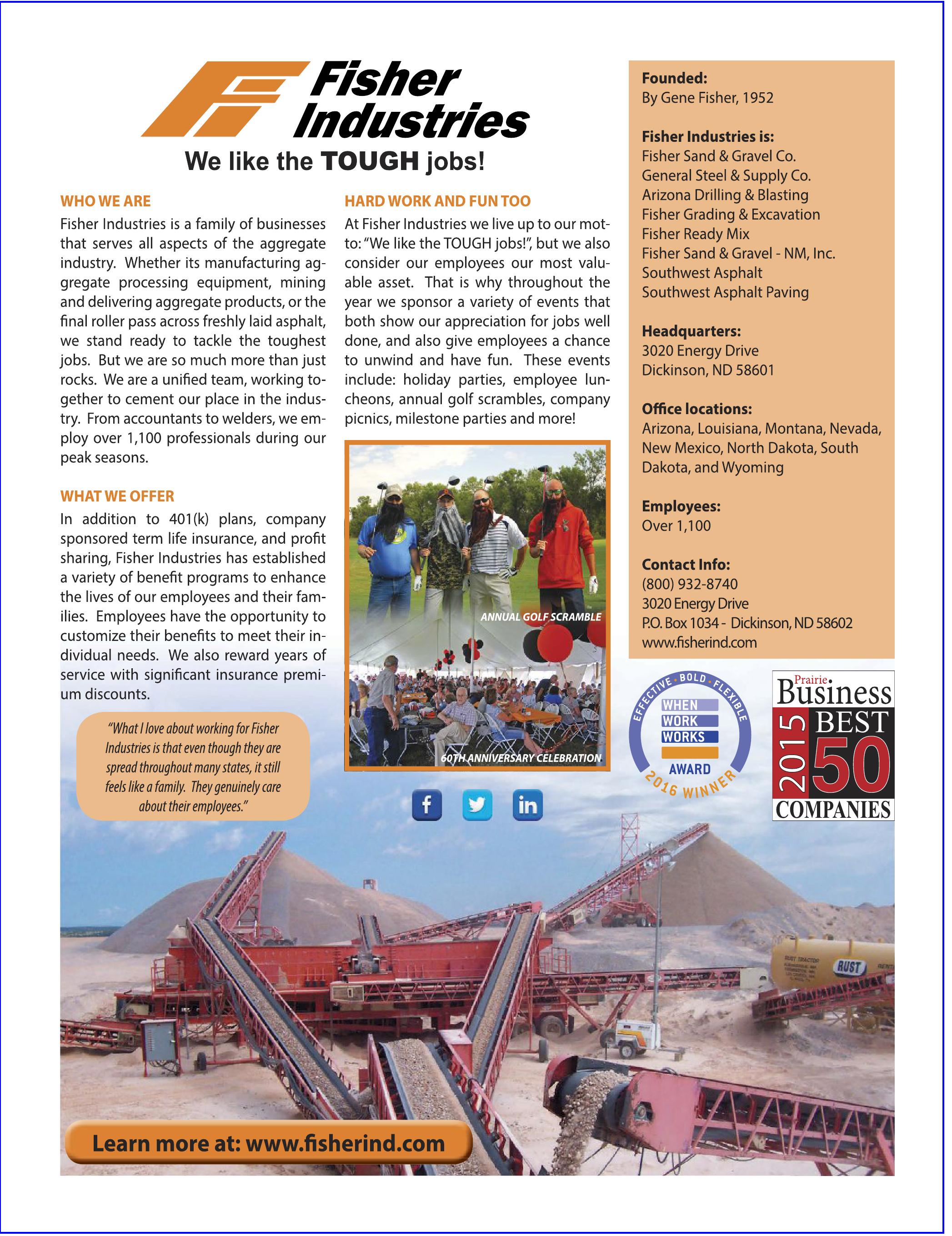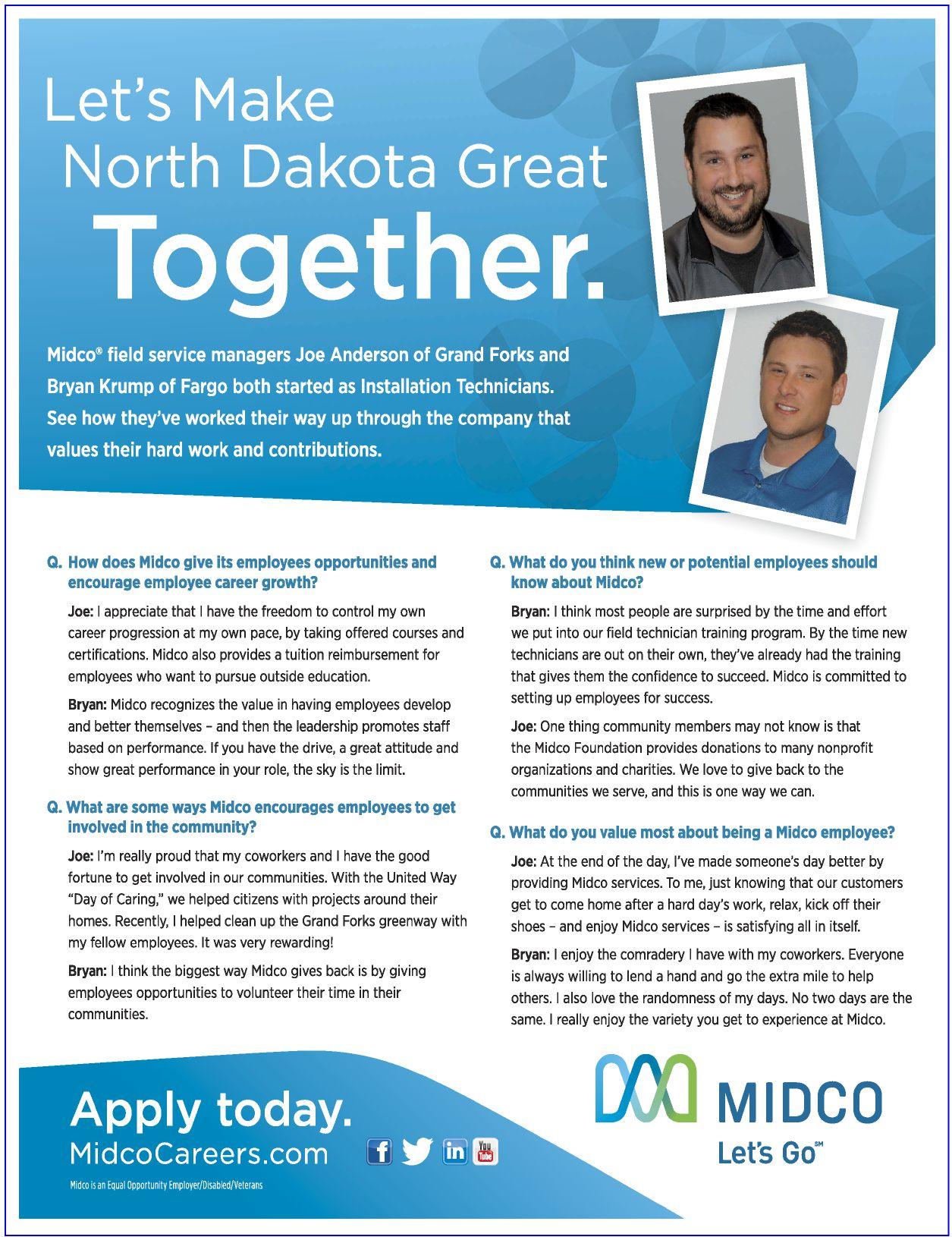
5 minute read
Jaime Sibet
Jaime Sibet graduated in May from the College of Business & Public Administration at the University of North Dakota with a bachelor’s degree in marketing with a minor in international business. She had three internships throughout her college career and received five job offers before she graduated. She is now employed as a national account sales trainee with Coyote Logistics in Minneapolis.
Q A
What would your ideal job be?
Well, honestly, my ideal job is a little fantastical, but my ideal job would be to run a company somewhere in Europe that planned weekend trips to major cities in Europe for students who are studying abroad, so they could get the best experience possible when they are there. A more realistic ideal job would be manager of sales for an international company and be able to interact and meet with people from all over the world.
QWhat are the main things you considered when choosing which job offer to accept (pay, community involvement, certain benefits, etc.)?
A
Pay is important when considering a job because those student loans won’t be that much fun to pay off, but most importantly, it was the culture of the company and the career opportunities it could offer. I don’t want to have to go to a job every day and not enjoy it, so feeling like I could fit in great with the company and really thrive there was the most important.
QWhat are the main deterrents you’ve come across from applying for jobs with any particular company?
A
I was able to sit down with a recruiter from a big corporate company from Minneapolis and they told me unless I have a family member or someone close to me working for their company, they weren’t going to really look at me because I didn’t graduate from the University of Minnesota or the University of Wisconsin-Madison.
QDo you think there is a gap between education and entering the workforce? If so, how can that be bridged?
A
Honestly, I think there are a lot of students who don’t realize the awesome resources Pancratz Career Development Center at our school offers (center director Kathy Lund helped me a ton and I owe a lot of it to her). There is a gap for some when they graduate because they never did an internship, or didn’t realize that they need to start job searching at the beginning of their senior year rather than the end of it. In my opinion, the best way to bridge it is preparing students with internships and career fairs long before they graduate.
QA Do you think young college graduates are more comfortable with intertwining their personal and professional lives than older generations have been?
I do think younger people prefer not to keep their personal and professional lives separate. It was a factor for me when I was looking for jobs because I feel that if there is a work environment where I can make friends, it would make going to work every day that much more enjoyable. Coyote has a very fun and “young” environment, which attracted me to the company. I was told everyone goes out to grab a drink after work often, which I felt was important because if I enjoy working with my coworkers, I will work harder.






Kevin Thompson
Department Head
University of Minnesota-Crookston Business Department
QWhat innovative measures are used by the University of Minnesota-Crookston Business Department to prepare its students for careers after college?
A
The UMC Business Department has a new initiative called the Business Student Community or BCrew. The project’s overarching goal is to develop a sense of community and connectedness among all business students (majors and minors) across our nine majors. Throughout the semester, the department sponsors professional or talent development opportunities as well as social activities. The monthly activities are designed to complement course work and extend learning outside of the classroom on important topics related to building professional skills that students may not cover in courses in their particular discipline of study. These topics, many of which are presented by area business leaders, include cultural competency, business start-up, communication skills, time management and mindfulness, etiquette, networking, business tours, personal branding, etc.
QDoes the school partner with industries to develop relevant curriculum based on what employers look for in new hires?
A

Q A
Every academic program at UMC has a Program Improvement Advisory Committee. PIAC membership includes practitioners from the discipline’s business community. For example, the marketing PIAC includes marketing professionals from different business sectors. The practitioners provide important information to the program faculty regarding curriculum, trends in the discipline and workplace, interdisciplinary suggestions, software usage, internship opportunities, etc. This powerful connection between faculty and the business community ensures that our academic programs are aligned with current practice, preparing students with the necessary knowledge and skills to transition very easily into positions upon graduation.
What feedback do industries give in regard to what is being taught at universities?
In addition to the program-specific feedback previously mentioned, our business community partners have provided suggestions applicable to all business students preparing for today’s workplace. Not surprisingly, our partners emphasize the importance in preparing students with nondiscipline-specific professional skills. These skills and attributes pertain to being a dynamic contributing team member and include problem-solving, creativity, collaboration, positive attitude, strong work ethic, flexibility, adaptability, interdisciplinary focus and cultural competency for today’s increasingly diverse global workplace (domestically and internationally). The goal is to use this valuable feedback to enhance our curriculum and course delivery as well as to focus our programing for the department’s Business Student Community (BCrew).
Q A
How is UMC helping students find careers after graduation?
The vast majority of UMC students are required to complete an internship course as part of their program requirements. In addition to providing students with a valuable learning opportunity to apply what they’ve learned in their course work and gain new skills, internships also provide a great networking opportunity for students to connect with working professionals. It is not uncommon for students to be offered full-time positions upon graduation within the companies that hosted their internships. The UMC Career Development Center is a key resource for students during their career search efforts. The center provides personalized attention by utilizing both campus-specific resources as well as the significant resources of the University of Minnesota system. Some of these valuable resources include the annual on-campus Career and Internship Fair, GoldPass (an internet-based tool connecting students and alumni with employment opportunities around the world), workshops and webinars, Interview Stream (interview preparation software), etc.
Q A
What role does social media play in recruiting students to the school and helping students find careers after graduation?
UMC uses social media as if we were an actual individual. It showcases the campus personality. This includes a daily slice of campus life to showcase students, faculty and alumni achievements, shared in 140 characters or less, in photographs and in information on Twitter, Facebook, Instagram, Snapchat, etc. Interest on our social media profiles is boosted when students share their college decisions. It also serves as a way for alumni to network with one another and students to engage with alumni, and as a place for parents to see what their students are involved in or engage with the campus.
Social media is bigger now than ever as a way for students to have a view of campus life before they make their decision or before they move to campus.































